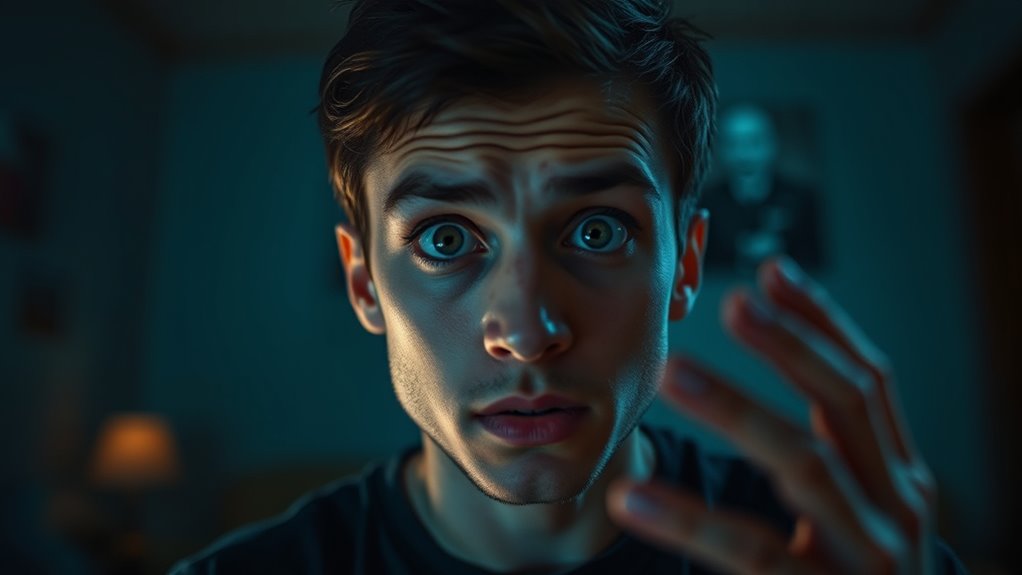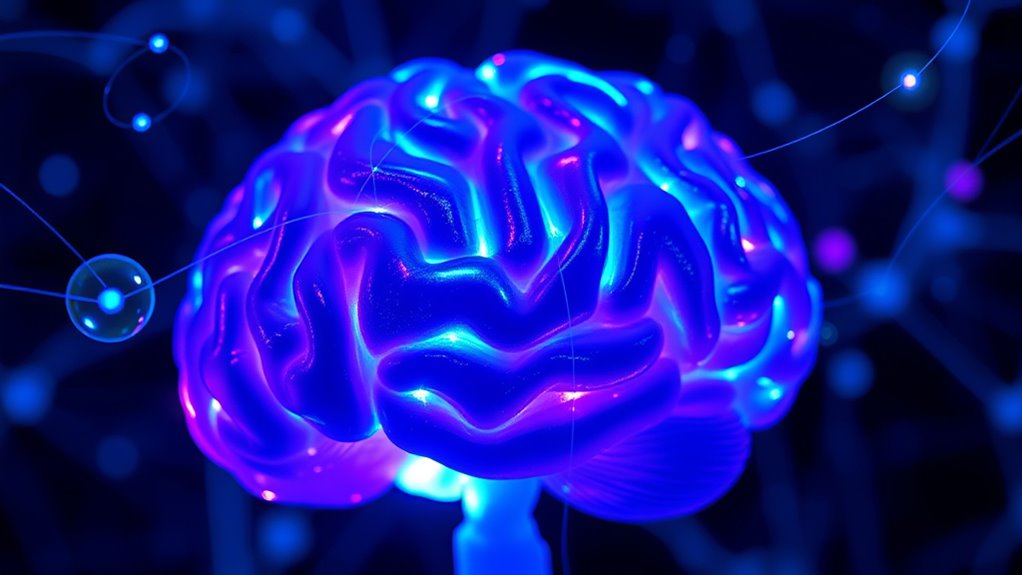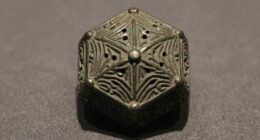Déjà vu happens when your brain experiences a brief glitch in its memory system, causing a feeling of familiarity with something new. This occurs because neural pathways temporarily misfire or overlap, confusing your current experience with a past one. Your hippocampus sends signals that feel like genuine recall, even though it’s just a temporary mix-up. If you want to understand how these fleeting memory errors reveal your brain’s complex processes, there’s more to uncover below.
Key Takeaways
- Déjà vu occurs when neural pathways temporarily misfire, causing the brain to confuse current experiences with past memories.
- The hippocampus plays a key role; glitches here can lead to a brief overlap of memory signals, creating familiarity.
- Neural plasticity allows for learning but can also cause transient errors in memory processing, resulting in déjà vu.
- These memory glitches are usually short-lived, reflecting the brain’s complex, fallible handling of information.
- Studying déjà vu offers insights into neural pathway operations, highlighting the brain’s dynamic yet imperfect memory system.

Have you ever experienced the strange feeling that you’ve already seen or done something before? That uncanny sense, known as déjà vu, can catch you off guard, making everything feel eerily familiar in the moment. Scientists believe this sensation arises from the way your brain processes memories, specifically through neural pathways that handle memory processing. When these pathways misfire or overlap unexpectedly, your brain might interpret the current situation as a memory, even if it’s new to you.
Your brain is a complex network of neural pathways that constantly transmit information, helping you distinguish between past experiences and present realities. During normal memory processing, sensory information from your environment travels through these pathways, gets encoded, and forms a coherent memory. But sometimes, these pathways become temporarily out of sync. For example, a brief hiccup in neural activity could cause your brain to mistake a current experience for a familiar one, triggering that déjà vu feeling. It’s as if your brain momentarily confuses the present for a past event, even though you’re actually experiencing something entirely new.
This glitch in memory processing isn’t fully understood, but it’s thought to involve a mismatch between the brain’s memory systems. The hippocampus, a critical region for memory formation, might send signals that are similar to those generated during genuine recall. When this happens, your brain interprets these signals as a memory, leading to the sensation of familiarity. Some researchers believe that these glitches could be a byproduct of the brain’s effort to constantly integrate new information with existing memories. When the process falters just slightly, deja vu can occur as a kind of false alarm, a fleeting misfire in the neural network.
Furthermore, these neural pathways are highly adaptable, which is usually a good thing, allowing you to learn and remember efficiently. However, this plasticity can sometimes lead to temporary errors in memory processing. For example, if your brain’s temporal lobe—the area involved in recognizing familiarity—is momentarily activated without the proper context, you might feel as though you’ve experienced this moment before. This misfiring doesn’t indicate a problem with your memory in the long term; it’s simply a sign of the brain’s intricate, sometimes imperfect, method of handling millions of pieces of information every second.
In essence, déjà vu is a fascinating glimpse into how your neural pathways operate and sometimes falter during memory processing. It’s a reminder that your memory isn’t a perfect recorder but a dynamic, sometimes fallible system that keeps you constantly navigating the complex landscape of your past and present. The brain’s neural plasticity allows for adaptability but can also contribute to these fleeting misfires, highlighting the delicate balance in memory function.
Frequently Asked Questions
Can Déjà Vu Predict Future Events?
You might wonder if déjà vu can predict future events, but it’s mainly a predictive phenomenon rooted in your brain’s memory illusions. While it feels like you’re experiencing something ahead of time, science shows it’s just a quirk of how your memory processes past experiences. Déjà vu doesn’t actually forecast the future; instead, it reveals how your mind can create false connections, making you feel like you’ve already lived through a moment.
Is Déjà Vu Linked to Specific Brain Regions?
Did you know that about 60-70% of people experience déjà vu at least once? When you feel it, your hippocampal activity and the temporal lobe play key roles. These brain regions help process memories and familiarity, so when they misfire, déjà vu happens. Fundamentally, your brain’s memory circuits get temporarily confused, creating that eerie sense of familiarity. So yes, déjà vu is closely linked to specific brain regions like the hippocampus and temporal lobe.
How Common Is Experiencing Déjà Vu?
You might find déjà vu quite common, with studies suggesting about 60-70% of people experience it at some point. Neuroscience research indicates it’s a widespread phenomenon, though cultural interpretations can influence how you perceive these moments. Some see it as a spiritual sign, while others view it as a brain glitch. Recognizing its frequency helps you understand it’s a normal part of human cognition.
Does Age Affect Déjà Vu Frequency?
Think of déjà vu as a fleeting shadow dancing across your mind’s landscape. As you age, age-related memory changes can influence how often you experience déjà vu, often decreasing its frequency. Development of the brain’s memory circuits plays a role, with younger brains being more receptive to these glitches. So, your age can subtly shape how often you encounter this mysterious déjà vu moment, like a whisper from your subconscious.
Can Déjà Vu Indicate Underlying Health Issues?
You might wonder if déjà vu signals underlying health issues. While it’s often linked to normal memory anomalies and neural pathways, frequent or intense déjà vu could indicate neurological concerns like temporal lobe epilepsy or other brain conditions. Pay attention to how often it occurs and any additional symptoms. If it’s persistent or bothersome, consult a healthcare professional to rule out potential health issues related to memory glitches and neural pathways.
Conclusion
As you experience déjà vu, think of your mind as a curious detective tangled in a web of memories. These fleeting glitches are like whispers from a hidden chamber, revealing how your brain stitches the past and present into a mysterious puzzle. Though science seeks answers, each moment of déjà vu reminds you that your memory is an ever-changing mosaic—beautifully imperfect and endlessly intriguing, forever keeping you on the edge of discovery.









